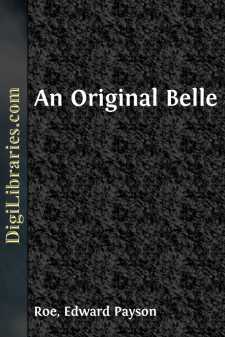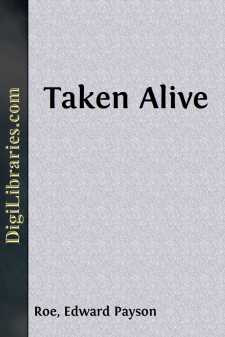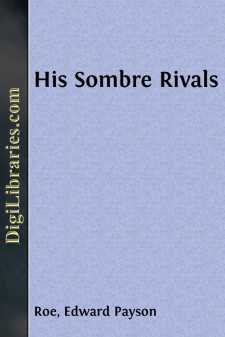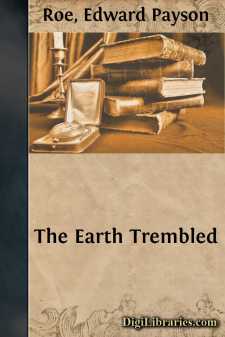Categories
- Antiques & Collectibles 13
- Architecture 36
- Art 48
- Bibles 22
- Biography & Autobiography 813
- Body, Mind & Spirit 142
- Business & Economics 28
- Children's Books 14
- Children's Fiction 11
- Computers 4
- Cooking 94
- Crafts & Hobbies 4
- Drama 346
- Education 46
- Family & Relationships 57
- Fiction 11829
- Games 19
- Gardening 17
- Health & Fitness 34
- History 1377
- House & Home 1
- Humor 147
- Juvenile Fiction 1873
- Juvenile Nonfiction 202
- Language Arts & Disciplines 88
- Law 16
- Literary Collections 686
- Literary Criticism 179
- Mathematics 13
- Medical 41
- Music 40
- Nature 179
- Non-Classifiable 1768
- Performing Arts 7
- Periodicals 1453
- Philosophy 64
- Photography 2
- Poetry 896
- Political Science 203
- Psychology 42
- Reference 154
- Religion 513
- Science 126
- Self-Help 84
- Social Science 81
- Sports & Recreation 34
- Study Aids 3
- Technology & Engineering 59
- Transportation 23
- Travel 463
- True Crime 29
An Original Belle
Description:
Excerpt
No race of men, scarcely an individual, is so devoid of intelligence as not to recognize power. Few gifts are more courted. Power is almost as varied as character, and the kind of power most desired or appreciated is a good measure of character. The pre-eminence furnished by thew and muscle is most generally recognized; but, as men reach levels above the animal, other qualities take the lead. It is seen that the immaterial spirit wins the greater triumphs,—that the brainless giant, compared with the dwarf of trained intelligence, can accomplish little. The scale runs on into the moral qualities, until at last humanity has given its sanction to the Divine words, "Whosoever will be chief among you, let him be your servant." The few who have successfully grasped the lever of which Archimedes dreamed are those who have attained the highest power to serve the world.
Among the myriad phases of power, perhaps that of a gifted and beautiful woman is the most subtile and hard to define. It is not the result of mere beauty, although that may be an important element; and if wit, intelligence, learning, accomplishments, and goodness are added, all combined cannot wholly explain the power that some women possess. Deeper, perhaps more potent, than all else, is an individuality which distinguishes one woman from all others, and imparts her own peculiar fascination. Of course, such words do not apply to those who are content to be commonplace themselves, and who are satisfied with the ordinary homage of ordinary minds, or the conventional attention of men who are incited to nothing better.
One of the purposes of this story is to illustrate the power of a young girl not so beautiful or so good as many of her sisters. She was rather commonplace at first, but circumstances led her to the endeavor to be true to her own nature and conscience and to adopt a very simple scheme of life. She achieved no marvellous success, nothing beyond the ability of multitudes like herself.
I have also sought to reproduce with some color of life and reality a critical period in our civil war. The scenes and events of the story culminate practically in the summer of 1863. The novel was not written for the sake of the scenes or events. They are employed merely to illustrate character at the time and to indicate its development.
The reader in the South must be bitter and prejudiced indeed if he does not discover that I have sought to be fair to the impulses and motives of its people.
In touching upon the Battle of Gettysburg and other historical events, I will briefly say that I have carefully consulted authentic sources of information. For the graphic suggestion of certain details I am indebted to the "History of the 124th Regt. N.Y.S.V.," by Col. Charles H. Weygant, to the recollections of Capt. Thomas Taft and other veterans now living.
Lieut.-Col. H. C. Hasbrouck, commandant of Cadets at West Point, has kindly read the proof of chapters relating to the battle of Gettysburgh.
My story is also related to the New York Draft Riots of 1863, an historical record not dwelt upon before in fiction to my knowledge. It is almost impossible to impart an adequate impression of that reign of terror. I have not hoped to do this, or to give anything like a detailed and complete account of events. The scenes and incidents described, however, had their counterpart in fact. Rev. Dr. Howard Crosby of New York saw a young man face and disperse a mob of hundreds, by stepping out upon the porch of his home and shooting the leader. This event took place late at night.
I have consulted "Sketches of the Draft Riots in 1863," by Hon. J.
T. Headley, the files of the Press of that time, and other records.
The Hon. Thomas C. Acton. Superintendent of the Metropolitan Police during the riot, accorded me a hearing, and very kindly followed the thread of my story through the stormy period in question....












